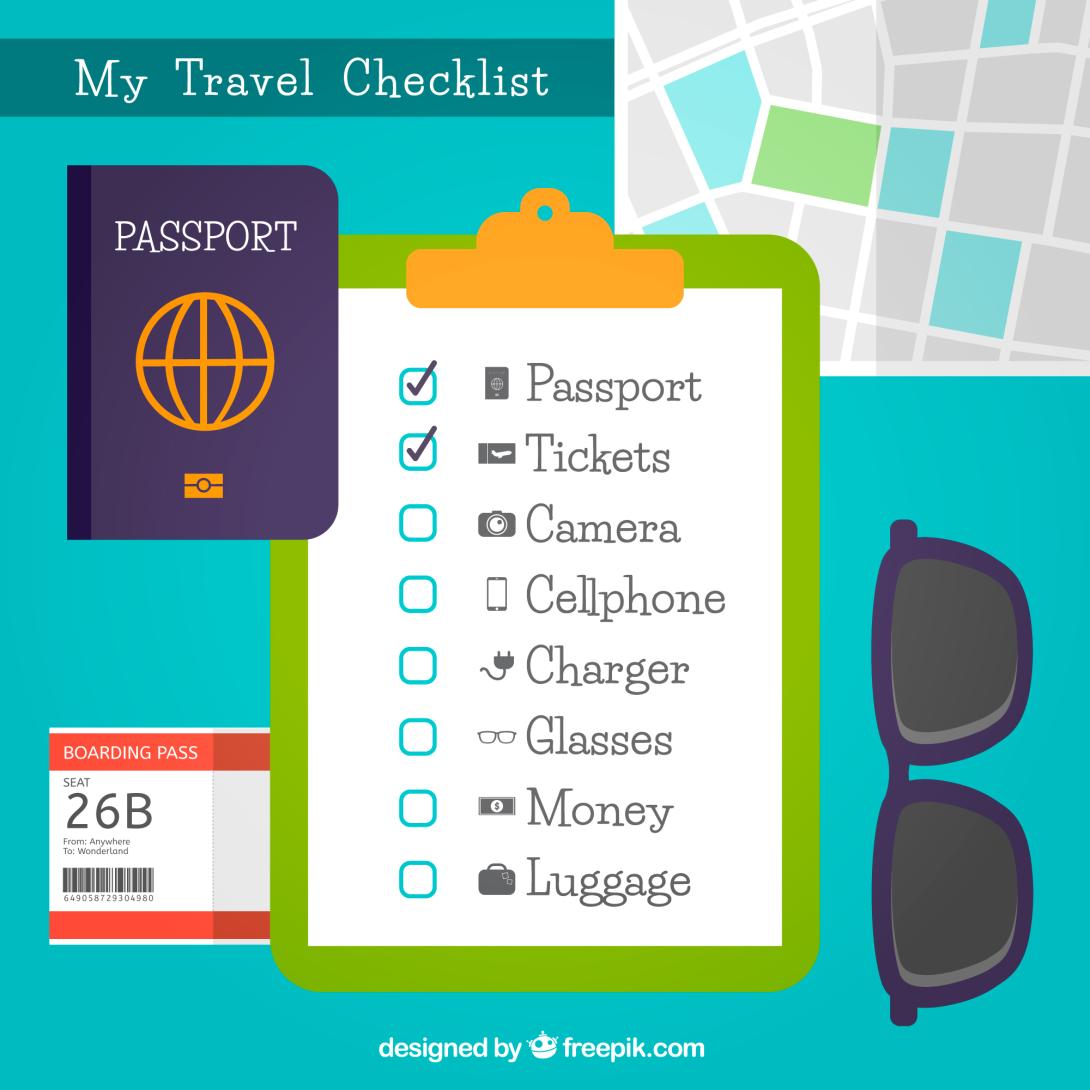A Complete List of Documents Required for Study Abroad
-
Study Abroad, Study Abroad for Indian Students, Best Countries to Study Abroad

Table of Contents
1. Passport
Scroll here ↓2. Student Visa
Scroll here ↓3. Acceptance Letter
Scroll here ↓4. Proof of Financial Support
Scroll here ↓5. Academic Transcripts and Certificates
Scroll here ↓6. Health and Travel Insurance
Scroll here ↓7. Language Proficiency Test Scores
Scroll here ↓8. Statement of Purpose
Scroll here ↓9. Passport-Sized Photos
Scroll here ↓10. Police Clearance Certificate
Scroll here ↓Conclusion
Scroll here ↓1. Passport
What It Is: Your passport is your primary identification document for international travel. It is a document that proves your identity and citizenship and is issued by the government of your home country.
Why It’s Important: Without a passport, you cannot enter or leave a foreign country. For study abroad for Indian students, as it is required for your visa applications and many other legal processes during your time abroad.
How to Get One: To get a passport, you need to apply through your government’s passport agency. This process typically involves filling out an application form, providing proof of citizenship like an Aadhar Card, a birth certificate or PAN card, an Xth Marksheet, and submitting a passport-sized photo. You might also need to pay a fee.
Tips: Make sure your passport is valid for at least six months beyond your study abroad program Some countries have this requirement to ensure that your passport doesn’t expire while you are in their territory.
2. Student Visa
What It Is: A student visa is a legal document that allows you to study abroad. It’s issued by the immigration authorities of the host country.
Why It’s Important: A student visa is essential for entering and staying in the country for the purpose of education. Without it, you will not be allowed to enroll in classes or reside in the country.
How to Get One: First, get accepted into a school for your study abroad program. Then, apply for a student visa with your passport, proof of acceptance, financial statements, and sometimes a health check.
Tips: Each country has its own visa application process, so check the specific requirements for the country where you will be studying. Start the application process early to avoid any delays.
3. Acceptance Letter
What It Is: An acceptance letter is a formal document from a school or university confirming that you have been admitted to their academic program.
Why It’s Important: This letter is a key part of your student visa application. It verifies that you have been accepted into an educational institution and that you meet the requirements for a student visa and study abroad.
How to Get One: You receive this letter after the admissions committee reviews your application and decides to offer you a place in their program.
Tips: Make sure that the acceptance letter includes your full name, the name of the institution, the course you’re enrolling in, and the start and end dates of the program.
4. Proof of Financial Support
What It Is: Proof of financial support shows you have enough money for your tuition and living expenses while you study abroad.
Why It’s Important: This document is required by both the visa authorities and the educational institution to ensure that you will not face financial difficulties during your stay.
How to Get One: You can provide bank statements, affidavits of support from family members, or scholarship award letters as proof. These documents should show that you have sufficient funds for the duration of your study.
Tips: Ensure that your financial documents are up-to-date and reflect your current financial situation. Most visa applications require you to show that you can cover your expenses for the entire period of your study abroad.
5. Academic Transcripts and Certificates
What They Are: Academic transcripts and certificates are official documents from your previous educational institutions that detail your academic performance and qualifications.
Why They’re Important: These documents show that you have completed the necessary academic requirements for your current program and are essential for the application process.
How to Get Them: Request these documents from your previous schools or universities. You may need to provide a written request, fill out a form, and sometimes pay a fee.
Tips: Make sure that your academic records are translated into the language of the host country, if necessary, and that they are certified copies if required.
6. Health and Travel Insurance
What It Is: Health and travel insurance covers medical expenses and emergencies while you are abroad. It can also include coverage for lost luggage or trip cancellations.
Why It’s Important: Insurance ensures that you are protected from unexpected medical or travel issues while you study abroad, which can be expensive and stressful.
How to Get One: You can purchase insurance from various providers, including travel agencies, insurance companies, or sometimes through your educational institution.
Tips: Choose a plan that covers a broad range of medical issues and travel mishaps. Verify that the insurance is valid in your study abroad country.
7. Language Proficiency Test Scores
What They Are: These are scores from tests like TOEFL or IELTS that show you can speak and understand the language used in your study abroad program.
Why They’re Important: Many universities require proof of language proficiency to ensure that you can follow the coursework and communicate effectively.
How to Get Them: Take tests such as the TOEFL, IELTS, or other language exams recognized by your institution. You will need to register for the test, prepare for it, and then submit your scores to the university.
Tips: Prepare for the test well in advance and ensure that your scores meet the minimum requirements set by your institution.
8. Statement of Purpose
What It Is: A Statement of Purpose (SOP) is a personal essay that outlines your academic and career goals and explains why you want to study at a particular institution.
Why It’s Important: The SOP provides a personal touch to your application and helps admissions committees understand your motivations and objectives.
How to Create It: Write a well-structured essay that includes your background, achievements, goals, and reasons for choosing the specific study abroad program and institution.
Tips: Be honest and reflective in your SOP. Customize it to the specific program and institution, showing that you have done your research and are genuinely interested in what they offer.
9. Passport-Sized Photos
What They Are: These are small photographs used for various documents, such as your student ID, visa application, and residence permit.
Why They’re Important: Passport-sized photos are required for identification and official documentation purposes.
How to Get Them: Get these photos taken at a professional photo studio or a photo booth that offers passport-sized photo services.
Tips: Follow the photo requirements specified by the embassy or institution, such as background color and photo dimensions.
10. Police Clearance Certificate
What It Is: A Police Clearance Certificate is a document that verifies you have no criminal record.
Why It’s Important: Some countries require this certificate to ensure that you do not have any criminal background that might pose a risk to public safety.
How to Get One: Apply for this certificate at your local police station or through a governmental agency responsible for issuing such documents.
Tips: Obtain this certificate well in advance, as it may take time to process.
Conclusion
Studying abroad is an amazing chance for personal and academic growth, but it takes careful planning. By organizing the documents we’ve covered, you’ll be on your way to a great study abroad experience.
At Global Grad, we know how challenging the study visa process can be. Our expert team is here to support you, keeping you motivated and guiding you through each step to help make your dream of choosing the best countries to study abroad come true.
Start early, stay organized, and let Global Grad help you make the most of your time studying abroad!

Jayantanuj Das
Clark University
Jayantanuj is an expert in the field of study abroad and overseas education, currently managing the position of Graduate Counselor at Clark University Massachusetts. Jayantanuj holds a vast experience in the EdTech domain and has donned several professional hats in his career so far such as business development,customer service and customer relationship management, consulting and counseling, market research and training.

Find out Universities in the USA where you get Admission
Check your Admit Eligibility NowRecent Blogs
-

MiM vs MBA: Which MBA Alternative Gives the Fastest Career Lift?
09 November, 2025 Read More › -

How Do You Qualify for a US Student Visa? — A GlobalGrads Guide
23 October, 2025 Read More › -

Study Abroad Scholarships for Indian Students
23 October, 2025 Read More ›





